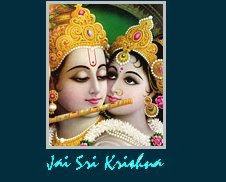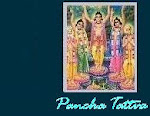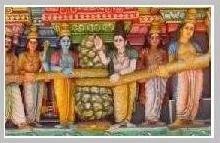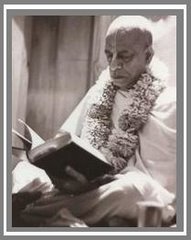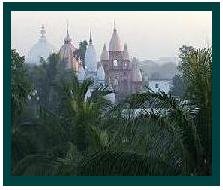 This is a mung dal kitchari which balances all three doshas. It is particularly beneficial for the stomach, lungs, liver, and large intestine. Mung beans are also revered for their detoxification properties.
This is a mung dal kitchari which balances all three doshas. It is particularly beneficial for the stomach, lungs, liver, and large intestine. Mung beans are also revered for their detoxification properties.Serves 4-5
1 cup yellow mung dal (split or whole)
1 cup basmati rice
1 inch piece of fresh ginger, peeled and chopped fine
2 tablespoons shredded, unsweetened coconut
1 small handful fresh cilantro leaves
1/2 cup water
3 tablespoons ghee (purified butter)
1 1/2 inch piece of cinnamon bark
5 whole cloves
4-5 crushed cardamom pods
10 black peppercorns
3 bay leaves
1/4 teaspoon turmeric
1/4 teaspoon salt
6 cups water
Wash the mung dal and rice until water is clear. Soaking the dal for a few hours or overnight helps with digestibility.
In a blender, put the ginger, coconut, cilantro and 1/2 cup water and blend until liquefied.
Heat a large saucepan on medium heat and add the ghee, cinnamon, cloves, cardamom, peppercorns and bay leaves. Stir for a moment until fragrant. Add the blended items to the spices, then the turmeric and salt. Stir until lightly browned.
Stir in the mung dal and rice and mix very well.
Pour in the 6 cups of water, cover and bring to a boil. Let boil for 5 minutes, then turn down the heat to very low and cook, lightly covered, until the dal and rice are soft, about 25-30 minutes if mung beans are split, and 1 hour if whole. Add water if needed.
General AyurVedic info - Doshas in the human body
"Kapha dosha" is the the term used to describe an excess of the water and earth elements. As such, it is a problem rather than a constitutional type, but people who are low in fire would have a tendency towards this condition, one that is characterized by slow digestion and excess ama, a word that can be broadly interpreted to mean phlegm or mucus.
"Vata dosha" is an Ayurvedic term referring to the aggravation of the "wind element," what in astrology is called the air element; but it generally involves a mixture of the air and ether elements. "Derangement" is another Ayurvedic term; it implies that a "dosha" or "fault" has occurred that is affecting constitutional balance and harmony.
"Pitta dosha" is made up of the two elements fire and water. Characteristics of Pitta dosha: hot and a little unctuous (sahasnehamushnam); sharp, burning (tikshnam); liquid and acidic (dravamlam); always flowing in an unbounded manner (saram); pungent and sharp (katuhu). Pitta contains fire, but it also contains water. It is the source of the flame, but not the flame itself. Compare Pitta to gasoline--it is not hot to the touch, but it can be the source of flames.
We should take care of this valuable human body and continue our search for Sri Krishna.















